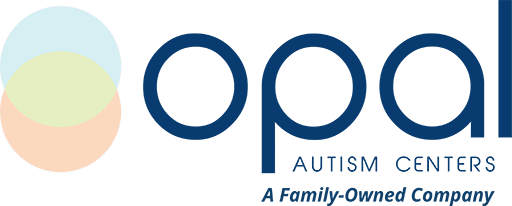Approximately 1 out of every 36 children will be diagnosed with autism, a number far greater than estimates in 2000 (1 in 150), 2012 (1 in 69), and even 2018 (1 in 44). While primary care providers are encouraged to periodically screen for autism during well-child visits (18-month and 36-month visits), it is sometimes daycare providers, therapists, grandparents, or others involved in our child’s life who are the first to identify autism characteristics. More often, it is us as parents and caregivers who are the first to notice signs such as delayed speech/language, limited eye contact, unusual attachments to toys or items, limited use of gestures and facial expressions, repetitive motor movements or play, unusual sensory interests or aversions, and a very limited/picky diet. Regardless of how concerns are first raised, the earlier an evaluation is completed the better. If you have concerns, please don’t wait!
Research has repeatedly shown that an early diagnosis of autism (preschool years) greatly improves outcomes. The first barrier for many families is getting a referral for the evaluation. Well-intending therapists, teachers, family friends, and even physicians may recommend a “wait and see” approach which delays testing and may feel to many as dismissive of our concerns. Sometimes, despite an insistence that “something is different,” parent’s concerns are overlooked or even misdiagnosed as trending terms such as “sensory processing disorder” and “Gestalt language disorder” by unqualified professionals. Perhaps your child is “just being a kid.” Perhaps it is “just a phase,” right? Parents – you are and will always be the expert on your child. If you suspect autism or other developmental delay, please let your voice be heard. Request a referral for autism testing directly from your child’s primary care provider. Delaying an evaluation by “waiting to see” may inadvertently delay access to medically necessary therapy and cause families to fall further behind on a waiting list.
Unfortunately, barriers do not end once a referral has been made. Perhaps the biggest barrier for most families is the long waitlist for testing. Imagine…finally having your voice heard only to be told it will be another year or two before your child is seen for testing. Yes, there may be few psychologists in your area (especially rural areas) who specialize in comprehensive autism evaluations. Autism can be an extremely challenging diagnosis to make and often requires extensive training, experience, and specialization. If you or someone you know is asked to wait for weeks, months, or even years, please don’t wait! Call around. Once you find a qualified (and trusted) psychologist, inform your primary care provider who can then refer others. Let’s all work together to reduce the waitlist barrier.
Finally, the testing process. Testing should NOT be shrouded in mystery nor take months to complete. For preschool aged children, the entire process can be as quick as one to two weeks. Assessments generally involve an interview with parents/caregivers to discuss concerns, ratings of development or adaptive functioning, autism specific rating scales, and direct observation of your child by the psychologist. Depending upon your child’s age and concerns, testing may also include an assessment of cognitive/intellectual ability, social-emotional development, and various other rating forms, questionnaires, and/or interviews. Following testing, you should be scheduled for a feedback session during which results are carefully explained and your questions answered. Regardless of diagnosis, recommendations are provided to help connect you with appropriate services.
If you have concerns about autism or general development, our amazing administrative team will guide you through the process from start to finish, including getting you quickly scheduled with our trusted psychologists who are experts in the early detection and diagnosis of autism. If an autism diagnosis is established, Applied Behavior Analysis (ABA) may be recommended. Our team here at Opal specialize in individualized ABA and early intervention services that are based on the needs of your child and your family. But…what about school? Opal’s Pre-School Readiness program is designed to prepare your child for elementary education by replicating the classroom setting in which students have opportunities to learn, create, and explore with one-on-one highly trained and compassionate ABA specialists. Please remember, you are not alone in this process. Opal is here to help.

